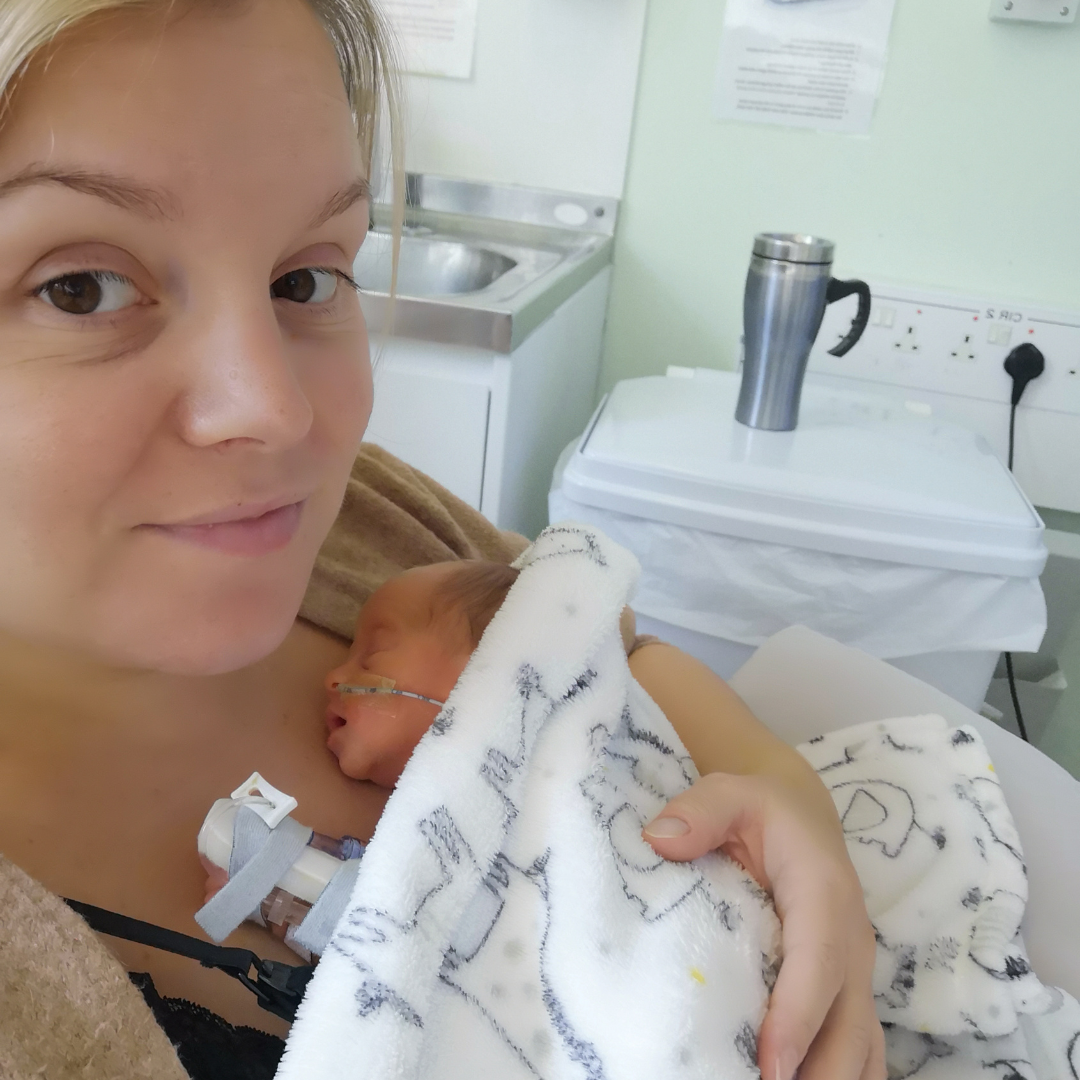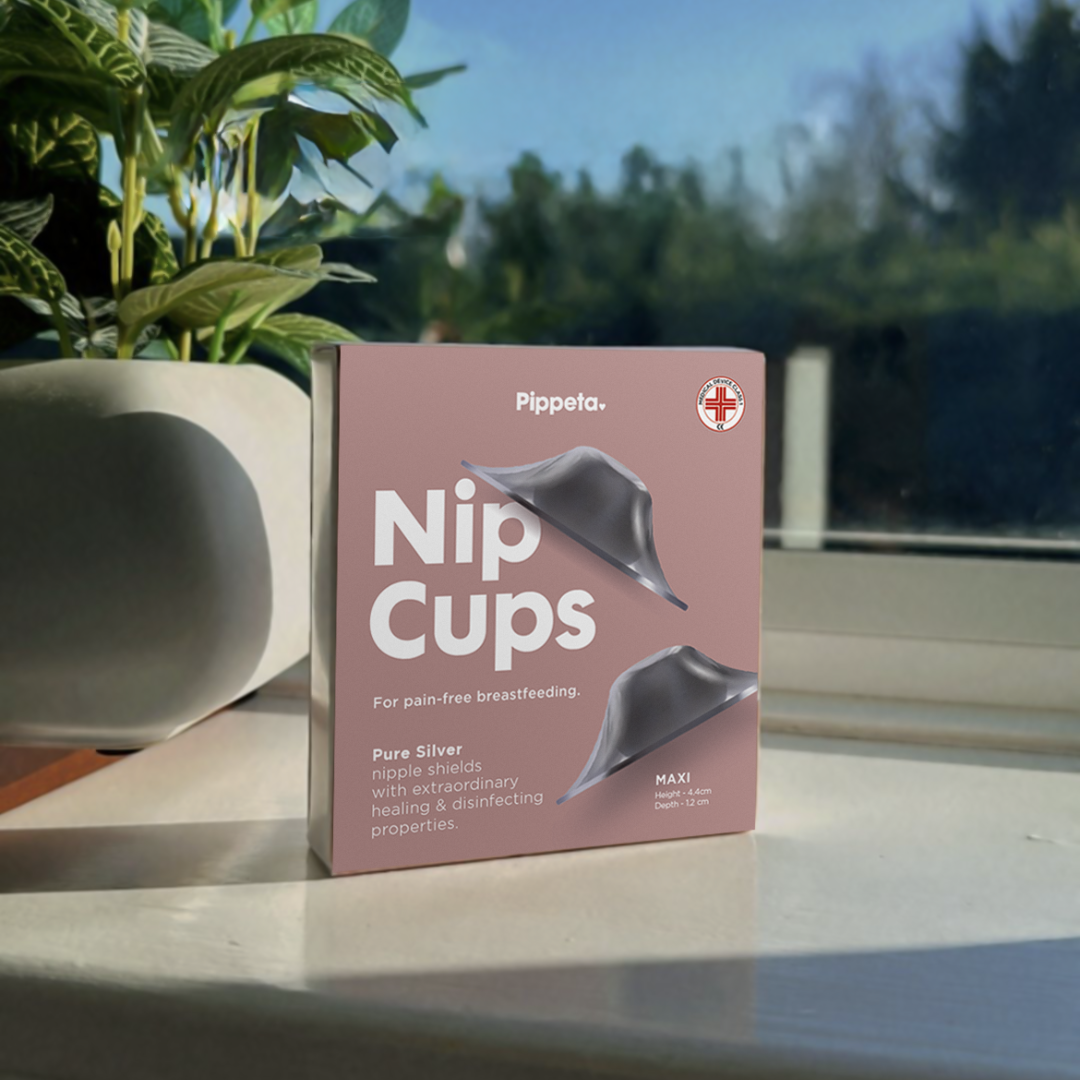In recognition of NICU Awareness Day, we’ve teamed up with Dr. Frankie Harrison, a clinical psychologist and NICU mum, to co-write an informative blog. We explore essential topics surrounding breastfeeding, pumping, and the vital support needed for NICU mums. Join us as we provide insights and practical advice to support families through their NICU journey and beyond, and discover how Pippeta’s pumps can make feeding and expressing easier and more affordable once you’re home.
A Message from DR Frankie Moon:

Pumping felt like the only thing I could do in NICU
When you enter neonatal care, it often feels unfamiliar, scary and uncertain. You’re trying to make sense of your surroundings, figure out what to do, and how to care for your baby. It can be overwhelming and confusing. One of the first things often mentioned is expressing milk for your baby. You might be handed a syringe shortly after giving birth, often while you’re separated from your baby, and asked to express colostrum. Breast milk is usually emphasised as being highly beneficial and healing for your baby, and naturally, you want to be able to provide that.
Many parents I speak to say that pumping felt like the one thing they could do in the NICU, I certainly felt that too. Often, we’re made to feel like our role is reduced to producing breast milk for our premature or sick baby. This can create a sense of pressure or purpose around pumping. It’s important to reflect on whether this feels like a helpful or unhelpful narrative for you personally. Also, we need to consider all the other ways you can support your baby in NICU, beyond expressing, which I’ll explore further below.
Barriers to bonding and breastfeeding grief
Bonding with your baby in the NICU can be incredibly tough, the tricky thing is the amount of shame and guilt people feel around it. It’s important to recognise that there are both emotional and physical barriers that can make connection difficult, and understanding these can help reduce that shame. The stress and trauma of having a baby in intensive care can lower your oxytocin levels, the hormone that helps build connection, while heightened cortisol levels can push you into fight, flight, or freeze responses, making it even harder to feel bonded. Physical separation from your baby or the presence of incubators, wires, and medical equipment can also limit physical touch, which is key to triggering oxytocin and kick-starting the bonding process. Even when you are with your baby, uncertainty about how to interact, whether you can hold, touch, or feed them, can add to that struggle.
I often describe it as a trickle of love rather than a rush, but it’s possible to establish a deep, loving bond with your NICU baby, it just might look different. Kangaroo care (skin-to-skin contact) or containment holding (placing your hands gently on your baby’s head and feet) can help build that connection. Simple acts like talking, singing, or using smell swatches can also strengthen the bond. Your presence, even when just watching your baby or getting involved in their care, is incredibly meaningful and helps foster that bond.
Breastfeeding grief
Breastfeeding in the NICU often looks very different from what many parents imagined, and it’s completely normal to feel grief over that. Whether you’re struggling to produce the milk your baby needs, relying on pumping or finding that breastfeeding isn’t an option at all, those feelings of loss and frustration are valid. It’s okay to mourn that experience. Not being able to feed your baby in the way you’d hoped can feel like a deep personal loss. It’s important to acknowledge those emotions and know that you’re not alone. Many parents have been through this and understand how hard it is. There is support available from people who truly get it, and seeking help, whether from lactation consultants or other NICU parents, can make a big difference in making sense of these feelings.
Support for NICU parents
A couple of tips from a Clinical Psychologist and NICU Mum:
- Compassion is so important when you're navigating life in the NICU. Think about what you would say to a friend in your shoes. You wouldn’t tell them that pumping is all they could do, or make them feel ashamed for struggling with bonding. You’d remind them that they’re doing the best they can in a really tough situation. It’s important to show yourself that same kindness.
- Looking after yourself while caring for your baby may feel overwhelming, but it’s so needed. Finding ways to soothe yourself, both on and off the unit, can help reduce stress and increase oxytocin, supporting milk production and bonding. Prioritising your mental health isn’t selfish; it’s a key part of caring for your NICU baby.
At Miracle Moon, we’re here to support you. We offer free resources on social media @miraclemoonuk, a podcast for NICU parents, and we have recently launched The NICU Space—a community membership for families past, present, and future. In The NICU Space, you’ll find mental health support, expert resources, and a community of parents and specialists who truly understand the NICU journey. It’s designed by NICU families, for NICU families, to provide guidance from your time in the unit to months or years after you’ve gone home. Join us to connect with others and find the support you need at every stage. Find out more at The NICU Space: Your NICU Parent Community (miraclemoon.co.uk).

How Pippeta Supports NICU Mums
At Pippeta, we understand how challenging the NICU experience can be. With so much on your mind, our goal is to make breastfeeding and pumping as stress-free as possible. Our hands-free, wearable breast pumps are designed to offer NICU mums the comfort, ease, and convenience they need, helping you express milk without compromising on connection or care for your baby.
Like Miracle Moon, we pride ourselves on building a supportive and active community of mums who are always ready to offer advice and share their experiences on breastfeeding and pumping. When you purchase a Pippeta pump, you also receive free IBCLC (International Board Certified Lactation Consultant) support, giving you that extra level of care and guidance during your milk-producing journey—particularly valuable for NICU mums navigating this delicate time.
The Pippeta pumps are ideal for busy NICU mums. Compact and lightweight, they fit discreetly inside your nursing bra without any tubes or wires—allowing you to pump wherever you are, whether that’s by your baby’s side, holding their hand, or taking a moment for yourself. The soft silicone curved cups offer comfort, while multiple massage settings and 12 suction levels ensure a tailored, comfortable pumping experience. Quiet and easy to clean, Pippeta pumps let you focus on bonding with your baby while efficiently maintaining your milk supply.
By offering affordable, high-quality products, Pippeta makes pumping in the NICU more accessible. You can purchase the Pippeta Compact and Original Pump directly from our website, both designed to help you provide essential breast milk while keeping your hands free to care for your little one.















Leave a comment
This site is protected by hCaptcha and the hCaptcha Privacy Policy and Terms of Service apply.